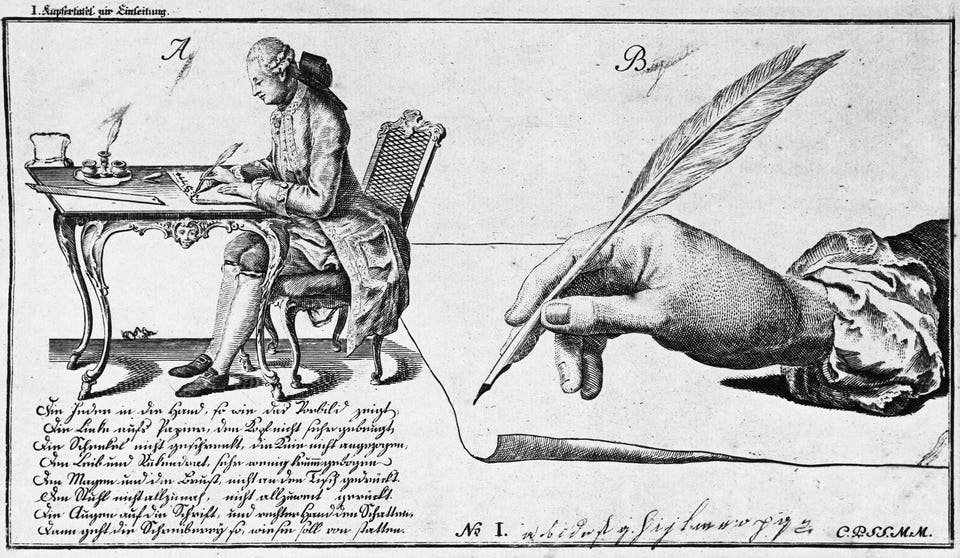Forbes Leadership Education Why We Write Like Lawyers Rather Than Scientists. Ray Ravaglia Contributor Opinions expressed by Forbes Contributors are their own. I write about education at the intersection of tech and innovation.
Following May 30, 2023, 06:14pm EDT | Press play to listen to this article! Got it! Share to Facebook Share to Twitter Share to Linkedin Basic Writing Instruction Writing Mirrors Confirmation Bias. Getty Images Most students learn to write in their English courses. They begin writing paragraphs, proceed to five-paragraph essays, and then generalize to longer pieces.
They are taught to formulate a strong thesis statement and then to find supporting evidence for this thesis. This typically involves selectively skimming texts until a suitably supportive sentence appears and then inserting this sentence into their essay, with the appropriate citation, to support the thesis. This process of selectively skimming for support has another, less flattering name: “confirmation bias.
” Confirmation bias is the tendency to search for, interpret, favor, and recall information in a way that confirms or supports one’s prior beliefs or values. Selectively choosing supporting facts that support a claim while ignoring facts that contradict the claim is not a method for discovering the truth, only for reaffirming already known truths. It is a strategy perfect for lawyers but less useful for scientists.
The logical form of writing follows the structure of geometric proof. One starts with a hypothesis and advances an argument by citing theorems and drawing logical inferences until one concludes the truth of the hypothesis. The same is true in legal writing, where counsel makes a claim and then cites supporting case law to establish the rightness of the claims, though in the legal case, this is done even while opposing counsel is doing the same to prove the opposite.
Such is the link between geometric and legal reasoning that Abraham Lincoln is said to have mastered the first six books of Euclid and often cited Euclid during speeches . While rhetorically effective, very little truth can be found when the conclusion filters the evidence. To discover new knowledge, one needs a different approach.
Rather than starting with a conclusion and seeking support, one needs to start with a hypothesis and then gather relevant evidence against which the hypothesis can be weighed and its truth or falsity determined. While rare in English, this type of writing is commonly seen in the sciences and mathematical social sciences such as economics. One recent book points out that “what distinguishes Thomas Sowell’s scholarship is intellectual honesty, asking the right questions, gathering the relevant data, and following the facts to their logical conclusion – even if that conclusion is unpopular.
” This method of writing does not start at the conclusion and work back toward a justification. Instead, it recognizes that one progresses in knowledge through hypothesis and then the testing of the hypothesis. The test needs to be legitimate and not merely seek evidence to justify the predetermined conclusion, and the results need to convey the data and the conclusions drawn from the data.
MORE FOR YOU There’s Something Fishy About ‘The Little Mermaid’ Audience Review Scores — Update — The Critics Must Be Crazy Here Is The Leaked Allegedly Final MCU Fantastic Four Cast It s A Big Deal Crypto Suddenly Braced For A Huge China Earthquake After Bitcoin Ethereum BNB XRP Cardano Dogecoin Polygon And Solana Price Swings Formulating a reasonable hypothesis and a method for gathering data to test that hypothesis requires subject-specific knowledge, which is something other than what English courses can assume about their students. Likewise, concisely reporting the results consistent with discipline norms must be learned . This is why writing should be taught in every department.
Even so, within an English class, training students to look for conflicting and supporting evidence would improve comprehension while also helping avoid internalizing confirmation bias. Likewise, regardless of the domain, there is value in the author being able to explain how they have come to the conclusion they are defending, including any evidence that might undermine the conclusion. These problems will not become more manageable in the age of AI.
As more and more “essays” are generated by ChatGPT and other Large Language Models, the cherry-picking of student support will likely be replaced by the biases inherited from the training set and the propensity of the generators to fabricate supports. The result will be essays that range from being narrowly focussed on demonstrating the truth to inserting caveats that seem strangely out of place to outright fabrication of supporting citations. Lawyers have already embraced this approach, and judges have sanctioned them.
A more promising approach is the computational essay , though it is unlikely to become commonplace soon. Such essays combine writing with programming and generate results that collect and visualize data about which the author can draw conclusions. The advantage of this approach is that there is complete transparency regarding the data and its analysis, and the reader can interact with and modify both to test the conclusions drawn by the author.
If the day comes when this technology is readily available to students, we may finally move from teaching people to write like lawyers to teaching them to write like scientists. Follow me on LinkedIn . Check out my website .
Ray Ravaglia Editorial Standards Print Reprints & Permissions.
From: forbes
URL: https://www.forbes.com/sites/rayravaglia/2023/05/30/why-we-write-like-lawyers-rather-than-scientists/



